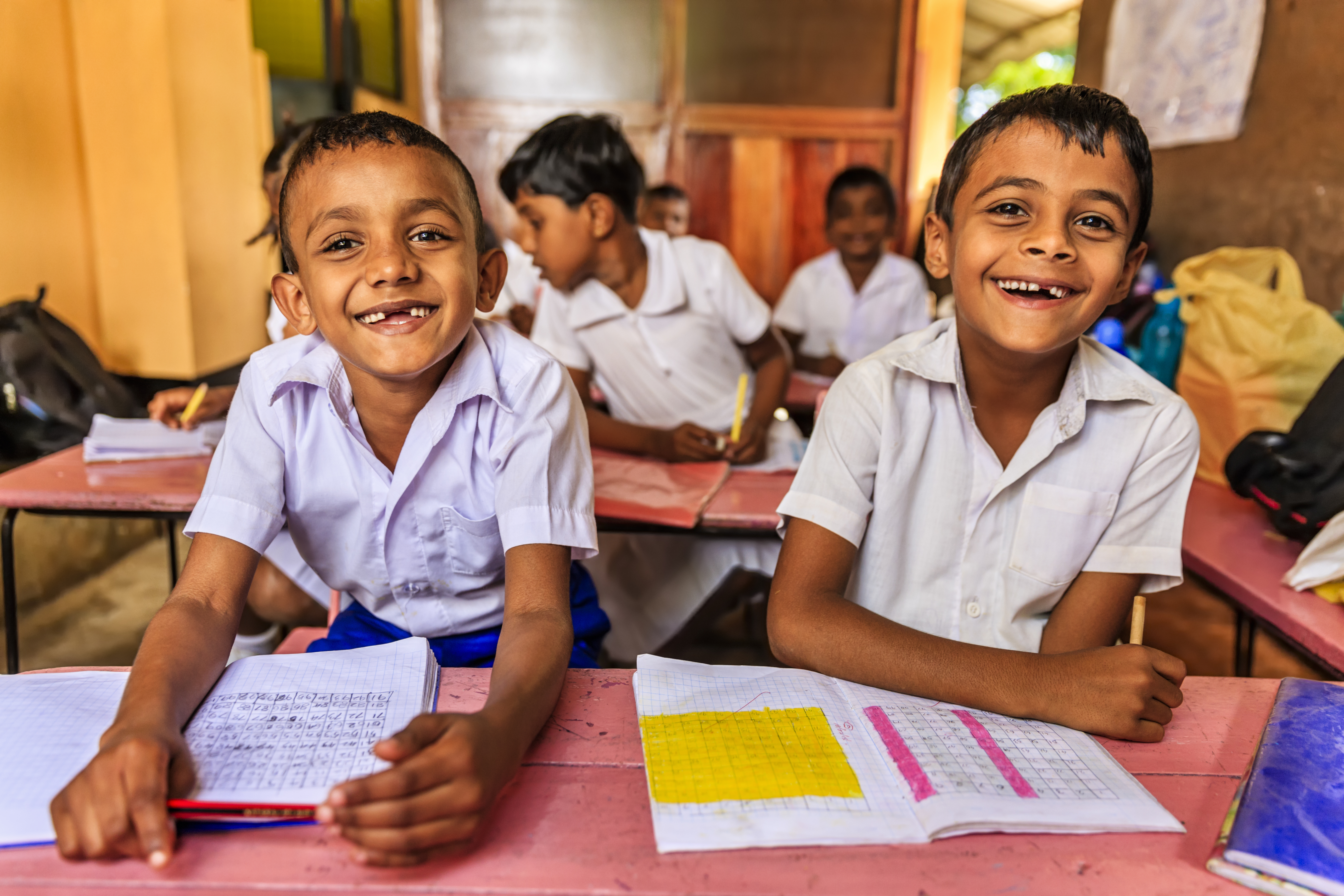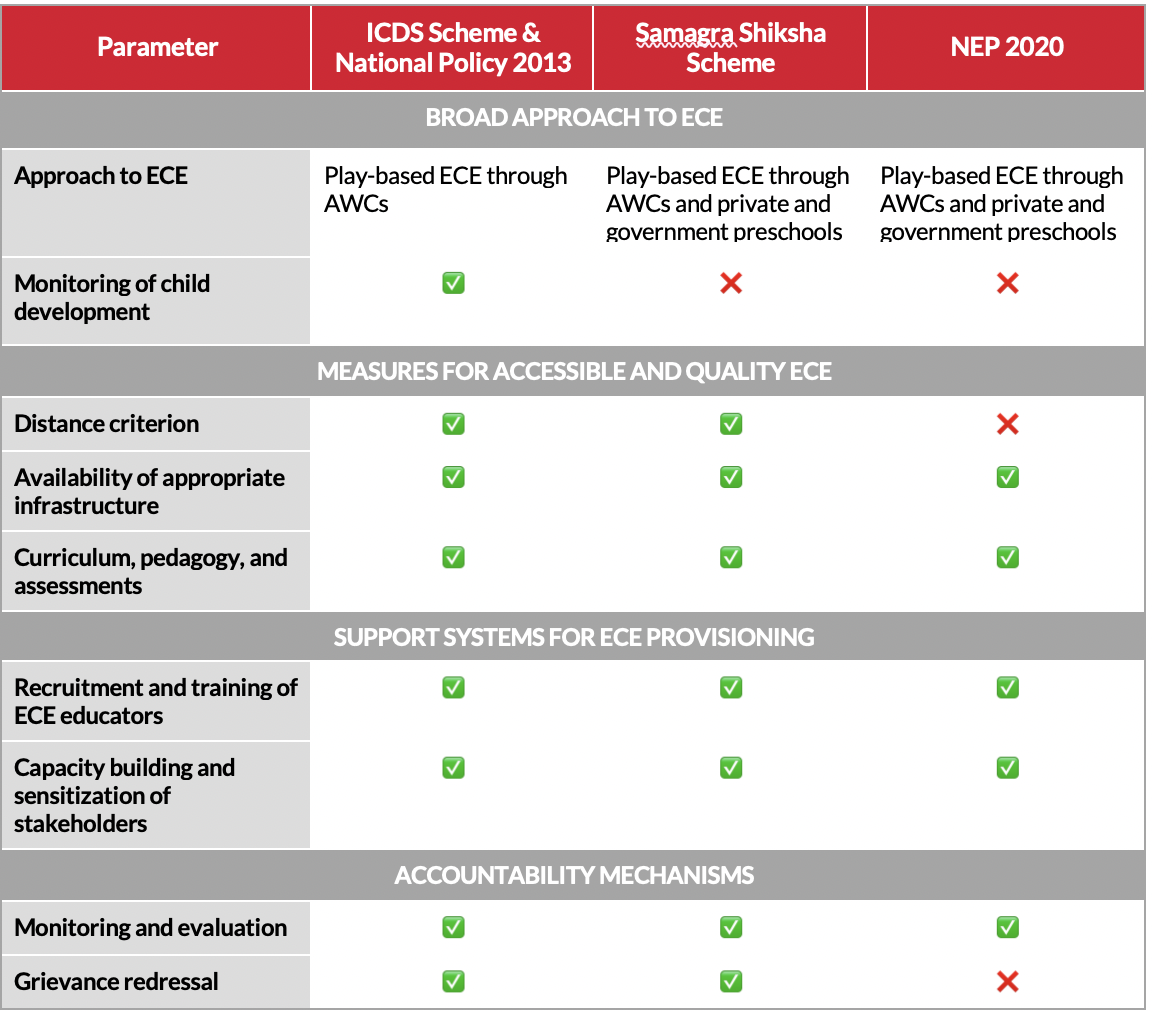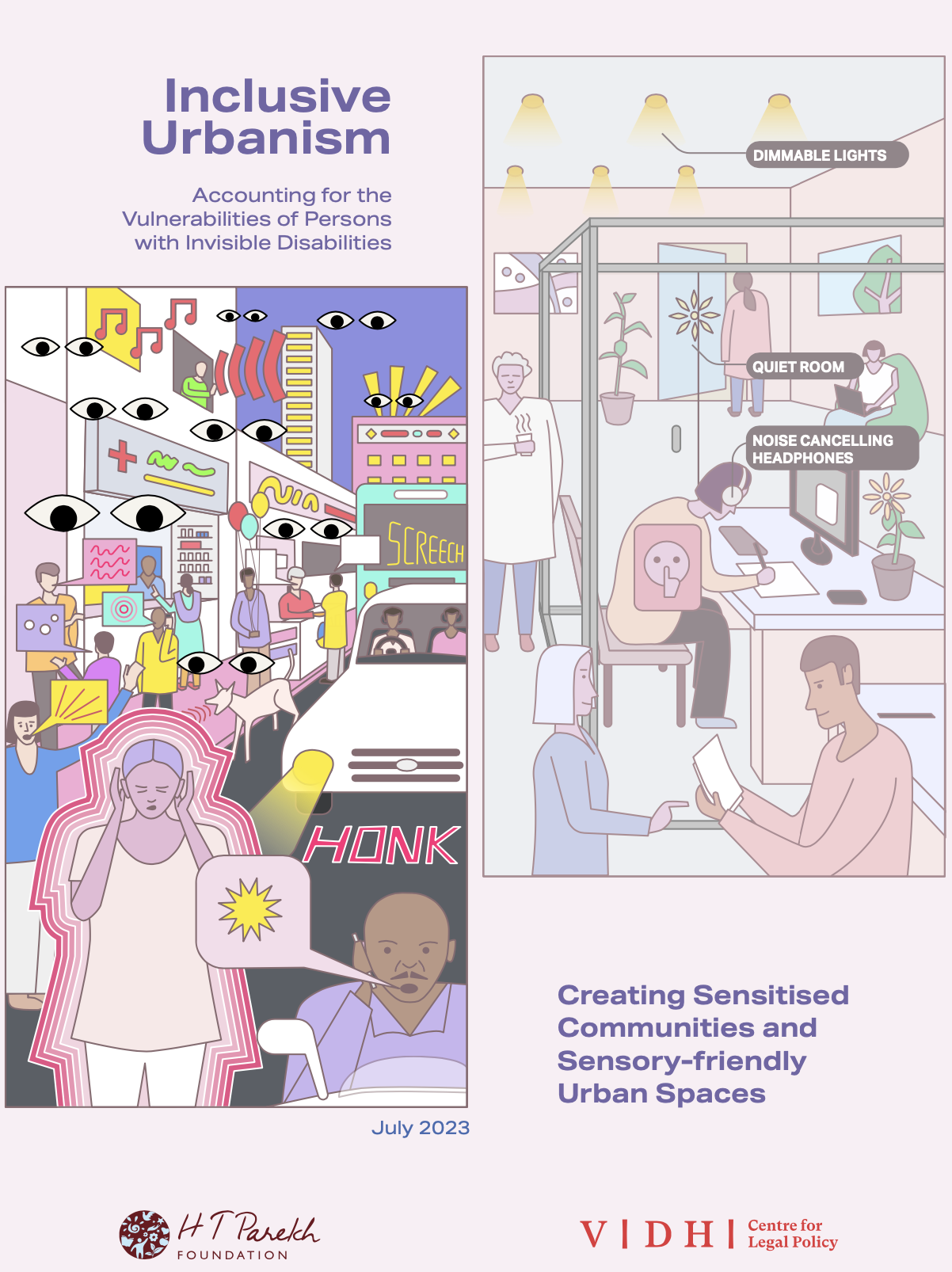
Towards an Early Start: Mapping Inclusion in Early Childhood Education in India
Setting the Context
Early childhood care and education (ECCE) programs have the potential to support physical, cognitive, and socio-emotional development, and may determine the educational progress of children throughout their lifetimes. Further, for children with disabilities (CwDs), ECCE has additional benefits. For example, it is found to improve integration with peers, cognitive and communication development (especially for those with severe disabilities), and increase retention in and completion of grades. The absence of such interventions may thus risk depriving CwDs of learning opportunities and affect their overall development.
Despite its importance, the approach to ECCE in India has remained informal and staggered, in the absence of any legislative backing, and with fragmented policies and schemes guiding its provisioning. Moreover, the existing policy framework for ECCE implementation does not explicitly provide for inclusive education of CwDs at this stage. Therefore, there is a need to examine the legal and policy framework governing ECCE delivery in India to identify and address legislative gaps, and with the aim of moving towards formalised and inclusive ECCE.
Our Study
With this background in mind, this report aims to map the legal framework for the inclusion of CwDs in early childhood programmes, limited to early childhood education (ECE) programmes using a desk based secondary research methodology. The broader objective of this report is to present a holistic understanding of the provisioning of inclusion at the preschool and foundational level for CwDs under the currently operational laws, policies, and schemes.
Key Findings and Way Forward
A brief summary of the major policies in India which have direct or indirect provisioning for ECE for CwDs, is presented below:

A major finding of this report has been that in several instances, inclusion of CwDs in ECE is not directly provided for, but rather can be inferred from: (a) Broader provisions for inclusion of CwDs in education that are also applicable at the stage of ECE; or (b) Broader provisions for ECE for all children, that are also applicable to CwDs receiving ECE. On the basis of these findings, as well as an analysis of other relevant legislations and policies on education and disability rights, the authors have presented recommendations for strengthening ECE for CwDs in India, including regulatory and legal changes as well as measures to improve accessibility to ECE and robust monitoring of the same.





